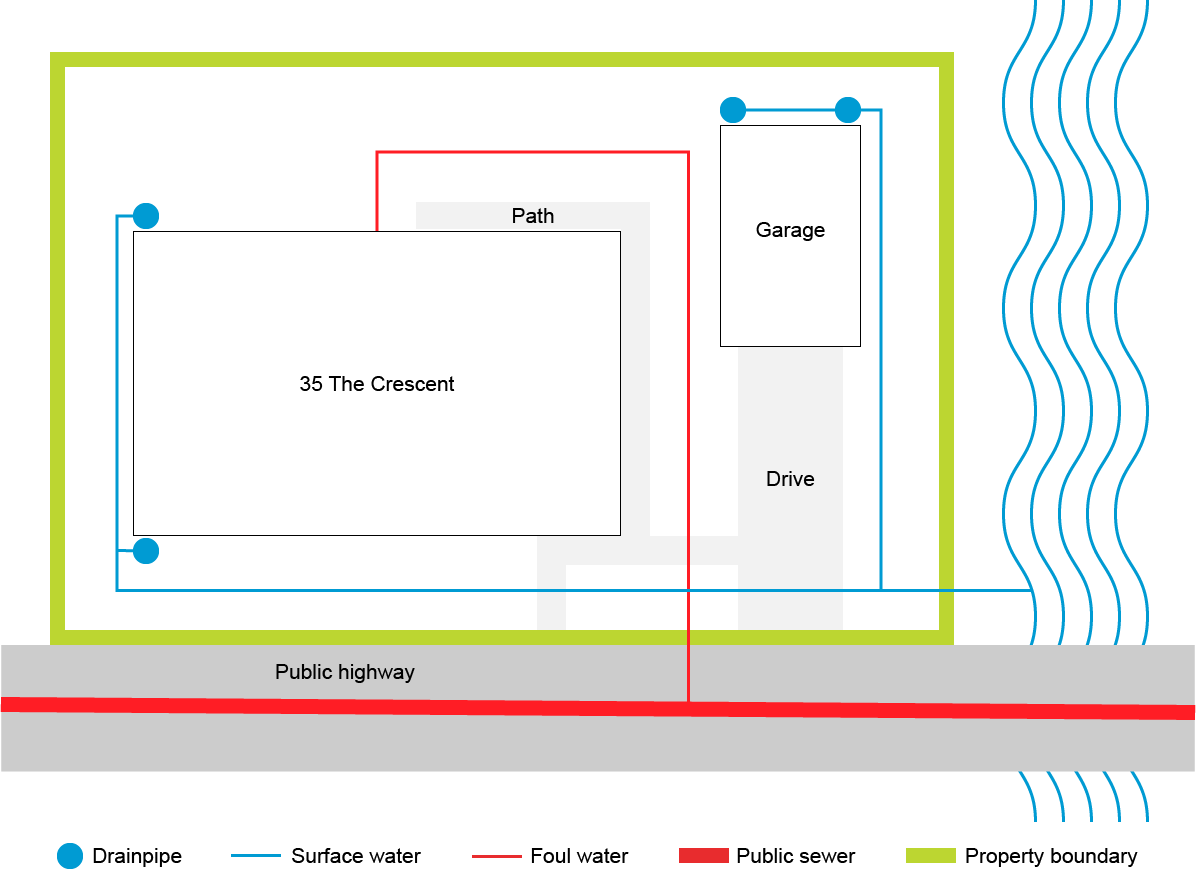What is surface water?
Surface water is the rainwater that’s collected from your drains and gutters. If it wasn’t removed, it could cause damage to your home, your paths and driveways. If your surface water doesn’t go into a public sewer, you can apply for a rebate.
Can I apply for a rebate?
Any surface water that comes from your home and drains into a public sewer is treated by us, and is charged for. However, if we can be sure that the surface or groundwater from your home doesn’t drain to a public sewer (either directly or indirectly) then you can apply for a rebate.
If your home is part of a building with a shared roof, such as a flat, and it’s connected to the public sewer for the removal of surface water, the charge is payable.
Before you claim a rebate, if safe to do so, please check where your surface water actually drains to. Most homes have drain pipes outside and water from the gutters usually ends up in the same drain as the waste water from the kitchen or bathroom. If you’ve checked and the surface water from your home doesn’t drain to a public sewer, download an application form and send it to us (it’ll also ask you to provide an accurate plan of your home).
If you’ve got a rainwater harvesting system fitted at your home and any water used from it eventually finds its way into the public sewer there will be a charge for this.
How do I apply for a rebate?
It's easy to apply for a rebate, just download and fill in our application form.
To complete the application form, you'll need to draw us a plan of your property and where any rainwater falling on your roof and gutters drains to, like this one:

What date will the rebate apply from?
We cancel the surface water charge for any new applications up to a maximum of six previous financial years or from the date that you became responsible for the bill, whichever is later. No rebates will be given any further back than this.
If we bill you on behalf of another water company for your sewerage charges, it’s probably worth checking with them to see what their policy on backdating reductions is, as it might be different to ours.

